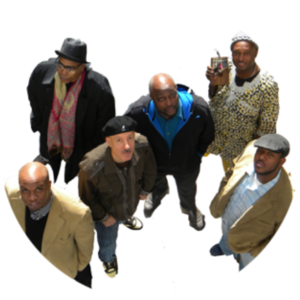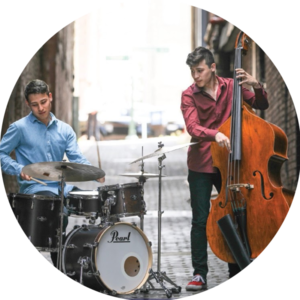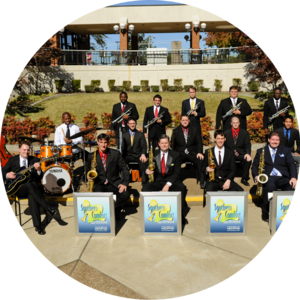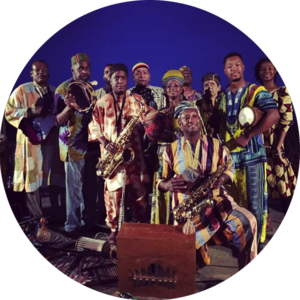Collaboration has been an essential element in the distinguished careers of master musicians Béla Fleck, Edgar Meyer, and Zakir Hussain, each of whom has achieved iconic status on his respective instrument: banjo, double bass, and tabla.
An intriguing scenario emerged when Fleck and Meyer — whose musical relationship goes back 35 years to their days on the New Acoustic Music pickin’ circuit — reached out to Hussain to help compose a triple concerto commissioned by the Nashville Symphony to commemorate the grand opening of its new home, the Schermerhorn Symphony Center, in 2006. This cross-cultural dream team yielded a Grammy-nominated recording, The Melody of Rhythm: Trip Concerto & Music for Trio, in 2009, and the trio realized their collaboration was a particularly fruitful one.
“In the case of Edgar and Zakir, I feel that there is still so much left for us to do,” Fleck wrote in a response to questions sent ahead of the trio’s sold-out Friday show at the Germantown Performing Arts Center. “We have not squeezed all the juice out of it.”
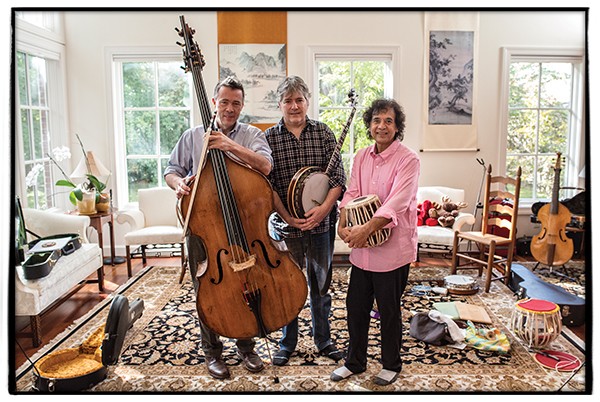 Alan Messer
Alan Messer
Bela Fleck
Hussain, the son of Alla Rakha, a longtime tabla accompanist to sitar icon Ravi Shankar, was born in Mumbai, India, and has played in famed collaborative projects such as Shakti (with Mahavishnu Orchestra guitarist John McLaughlin) and Planet Drum (with Grateful Dead percussionist Mickey Hart). He stressed that this trio’s creative success is built on deep personal chemistry.
“We first came together as composers who were going to write this piece for a symphony orchestra to play,” he says by phone from his home in Marin County, California. “[Playing as a band] came together over a period of time. What was interesting is our relationship as friends really grew, and our families got together and socially we were hanging out together a lot, and I firmly believe that is the reason we are able to make music like we do, with such comfort and ease.”
Fleck, 60, says he became fascinated with Indian classical music and music theory during a State Department-sponsored tour of India in the 1980s with his acoustic ensemble New Grass Revival. “It was clear that there was quite a lot that naturally could be assimilated into my musical consciousness,” he says. “The math is immediately usable to build new ideas, and also to understand the ideas I was already having.”

The trio lately has been augmented by a fourth member, Rakesh Chaurasia, who plays a bamboo flute called the bansuri that, like Hussain’s hand drums, is common to Hindustani (North Indian) classical music. His uncle, Hariprasad Chaurasia, now 80, is a renowned virtuoso on the bansuri who has recorded with Hussain and even contributed to “The Inner Light,” a 1968 Beatles track.
“Rakesh is a worthy successor to Hariprasad, and probably finest Indian flutist at the moment,” says Hussain. “One thing about young Indian musicians today, they not only grow up learning Indian music but simultaneously learn about all music around the world.”
Fleck says the group is performing compositions that incorporate Chaurasia’s flute melodies and the plan is to record another album as a quartet. “Rakesh is the new wild card,” he says, “who will alter all of us by his contributions.”
The group setting for Friday’s GPAC show might seem unfamiliar to fans who have seen Fleck play with his futuristic jazz-fusion combo the Flecktones or who caught his 2015 Beale Street Music Festival acoustic set with wife Abigail Washburn, but he says he thrives on such variety.
“It’s like playing different games, really,” he says. “If you get tired of Monopoly, you can play Sorry. Most of the music I play has improvisation, but the improv may have different rules. It keeps your mind alive and responsive. Life will change on you whether you want it to or not, so you better be prepared to respond to the challenges!”


